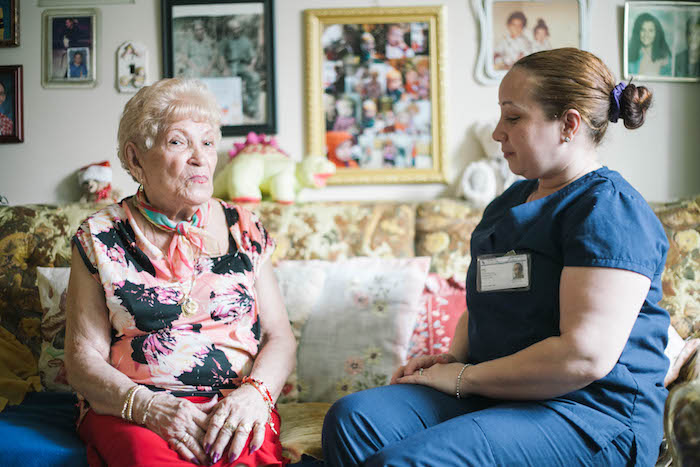
Every night at 7:00, New Yorkers open their windows and cheer for the first responders on the frontlines of the fight against COVID-19. These brave men and women deserve this praise along with every dollar of support that goes their way.
But as we continue to shelter-in-place to halt the spread of this virus, there is another group of workers who are just as vital.
There are nearly 400,000 home health and personal care aides in New York according to the Home Care Association of New York State (HCA-NYS). They provide essential medical care for the city’s most vulnerable senior citizens, many of whom live in poverty. As head of RiseBoro Community Partnership, I’ve seen their importance firsthand. Right now, they are struggling to care for their clients and keep themselves safe because 68 percent of agencies working in New York don’t have access to adequate personal protective equipment (PPE). And homecare agencies are suffering financially as a result.
Hospitals and other healthcare facilities must continue to receive PPE and other support they need, but we can no longer afford to leave homecare agencies behind. We are not asking to be prioritized over doctors and nurses. We simply need to be given the same resources.
To be sure, there have been some encouraging actions by the State. We were heartened by Gov. Andrew Cuomo’s executive actions that make it easier for us to add new caregivers to healthcare provider registries. Homecare providers also received $30 billion in emergency funds under the CARES Act. But further action is needed to ease the burden on our overwhelmed workers, and help agencies return to sustainable levels of operation.
Homecare workers like RiseBoro’s Blanca Peralta Pena are part of the solution to protect our most vulnerable and re-open society. After a 102-year old client’s daughter died from COVID-19, Blanca continued to provide compassionate service. Although aware she could be exposed, she said she could not in good conscience stop working with the client knowing her daughter had just died. Without the work of individuals like Blanca, seniors would have no choice but to be admitted to healthcare facilities, putting more strain on an already overwhelmed system.
The easiest step that can be taken to ease the burden on agencies and workers is for the State to immediately add homecare agencies to state directives on PPE prioritization. At RiseBoro, we are at a critical level of PPE, to the point where we’ve dedicated multiple full-time staff members to chase them down when those staff should be taking care of our clients. We’ve spent nearly $100,000 in staff time and material to purchase PPE. If the state is going to require all healthcare workers to use PPE, they must be easily accessible.
 CityViews are readers’ opinions, not those of City Limits. Add your voice today!
CityViews are readers’ opinions, not those of City Limits. Add your voice today!
Even when workers have the proper PPE they are not always able to perform their jobs. We have seen numerous clients, despite prior authorization, turning away homecare aides out of fear. With the risk the elderly face from COVID-19 we don’t blame them, but workers get paid per hour in our industry. Their families depend on that income. We’ve committed to paying them when they can’t work, but our funding sources have not done the same in their reimbursements to us.
Amid these challenges, reimbursement rates from payors remain at pre-pandemic levels. Changes to Medicaid reimbursement rates have led to rate reductions in some cases. The loss of service hours due to client cancellations, combined with the increased cost of purchasing the limited number of PPE, means that we are operating at an unsustainable level.
Insurance companies must cover lost and cancelled hours and increase their rates to account for the cost of PPE. If they don’t, homecare agencies risk entering a downward spiral that will be difficult to recover from. The federal government should additionally provide hazard pay to all frontline workers, as Gov. Cuomo suggested. These actions would go a long way in lessening the burden on homecare agencies and our workers.
The status quo is not sustainable. Homecare workers and agencies can no longer afford to work in an environment where they are not prioritized. We need access to PPE and financial support from the City, State and insurance companies. Homecare workers are on the frontlines of this fight. It’s time they are treated with the respect they deserve.
Scott Short is CEO of RiseBoro Community Partnership, a nonprofit service provider based in Brooklyn, NY.









One thought on “Opinion: Treat Homecare Aides as the Essential Workers They Are”
I have been a Home Health Care worker
for 35 years we need the support for
more finances and PPE supplies We care for the elderly as one of our family member
I have love ones to care for at home every
day thx again